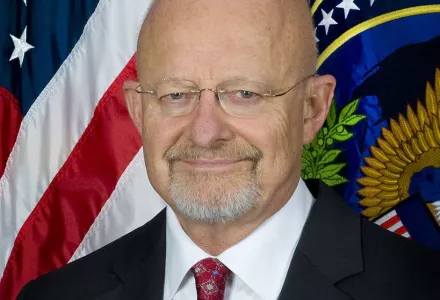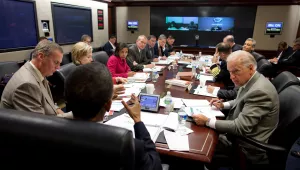Climate Crisis & Truth Decay: The Global Threats of Our Time
The Intelligence Project will host a lunch with General James Clapper, former Director of National Intelligence, from 12:00-1:15pm in the Belfer Center Library. Paul Kolbe will moderate.
Lunch will be provided on a first come, first served basis. Please RSVP below and bring your Harvard ID for check-in at the door.




